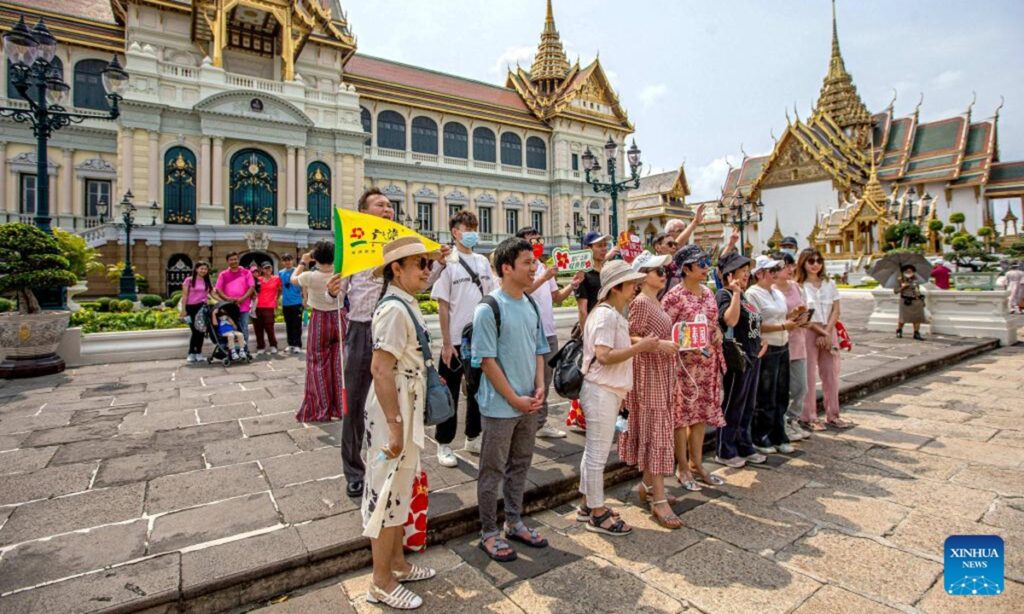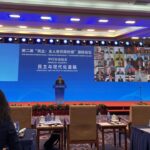On Thursday, the Thai Embassy in China issued a notice on Weibo, stating that Thailand attaches great importance to the quality and safety of Chinese tourists’ travels as well as their positive impressions of Thailand. Recently, there have been many negative comments about tourism in Thailand circulating on Chinese social media and some sensational rumors have even become a hot topic that alarmed the Thai Prime Minister’s office. Thailand’s Prime Minister Prayut Chan-o-cha ordered the Ministry of Tourism and Sports to clarify the situation in a cabinet meeting. This also shows that Thailand’s “high regard” for Chinese tourists is not just lip service.
The tourism industry is one of the pillars of the Thai economy, and Chinese tourists constitute the largest group of foreign tourists to Thailand. Hence, Thailand has no reason not to value the feelings of these “big customers.” To be frank, the Thai government’s response to the related public opinion is quick and strong, which is very necessary. It can timely help curb the further spreading of negative public opinion and avoid serious damage to the image of Thailand’s tourism industry. However, ultimately, this kind of “high regard” must be reflected in the actual experience of tourists. Winning word-of-mouth among tourists is the most effective way to resolve negative public opinion.
The three-year COVID-19 pandemic has dealt a heavy blow to Thailand’s tourism industry, and as a result, Thailand has higher expectations for the return of Chinese tourists. When China had just opened up outbound tourism and some countries were still restricting the entry of Chinese tourists, Thailand’s Deputy Prime Minister and Minister of Public Health, Anutin Charnvirakul, along with other officials, went to the airport to greet Chinese tourists and sent Chinese New Year greetings in Chinese days later, which made Chinese people feel warm and friendly, adding bonus points to Thailand’s tourism industry.
However, later on, Chinese tourists complained about greater price increases, being cheated, and worse service experiences than before. Negative information about traveling to Thailand such as “Is it still safe to travel to Thailand?” and “Thailand is not the same as it used to be” has recently received constant attention on the Chinese internet. There are objective factors behind this, such as flight shortages leading to ticket price hikes, tourism practitioners switching careers in large numbers during the three-year pandemic period resulting in insufficient reception capacity when there is a sudden surge in tourists, and a temporary shortage of hotel beds, etc. We hope and believe that Thailand will take measures to resolve these issues after noticing them. The longer it drags on, the more detrimental it will be to Thailand’s tourism industry.
For a long time, Thailand’s tourism industry has had strong competitiveness in terms of natural scenery, cultural features, and service quality. With high cost-effectiveness, traveling to Thailand is highly favored by Chinese tourists. We believe that most of the current problems are either technical or temporary and should be dealt with on a case-by-case basis. As for the safety issues that Chinese tourists are concerned about, it is also a top priority for the Thai government. Although some individual cases are not representative, they have caused concerns among Chinese tourists. The Thai authorities need to provide more reassuring security guarantees to dispel concerns as much as possible. Taking care of Chinese tourists is not only the responsibility of the Thai authorities, but also concerns their own interests.
It needs to be particularly emphasized that we firmly oppose creating and spreading rumors as well as making political associations. Among the negative information related to Thailand, horrifying rumors related to “trafficking of women” and “removing of kidney” have been particularly prominent in the past few days, causing concerns about the safety of traveling to Thailand on the internet. It should be noted that these online articles have also been criticized and refuted by many Chinese social media users, who believe that some bloggers are writing fake stories to attract attention. China itself is a victim of Western media’s slanders, demonization, and political manipulation. Chinese netizens should consciously resist such behavior and should not impose it on others.
The “mutual love” between Chinese tourists and Thailand has been a source of vitality for the tourism industry in both countries and an important foundation for people-to-people exchanges. We hope that Thailand will live up to its reputation and not disappoint the expectations of Chinese tourists. In the post-pandemic era, we hope and are willing to believe the impact of negative information will be limited, and the mainstream of China-Thailand people-to-people friendship will continue to converge through joint efforts from both sides.
(Global Times)




